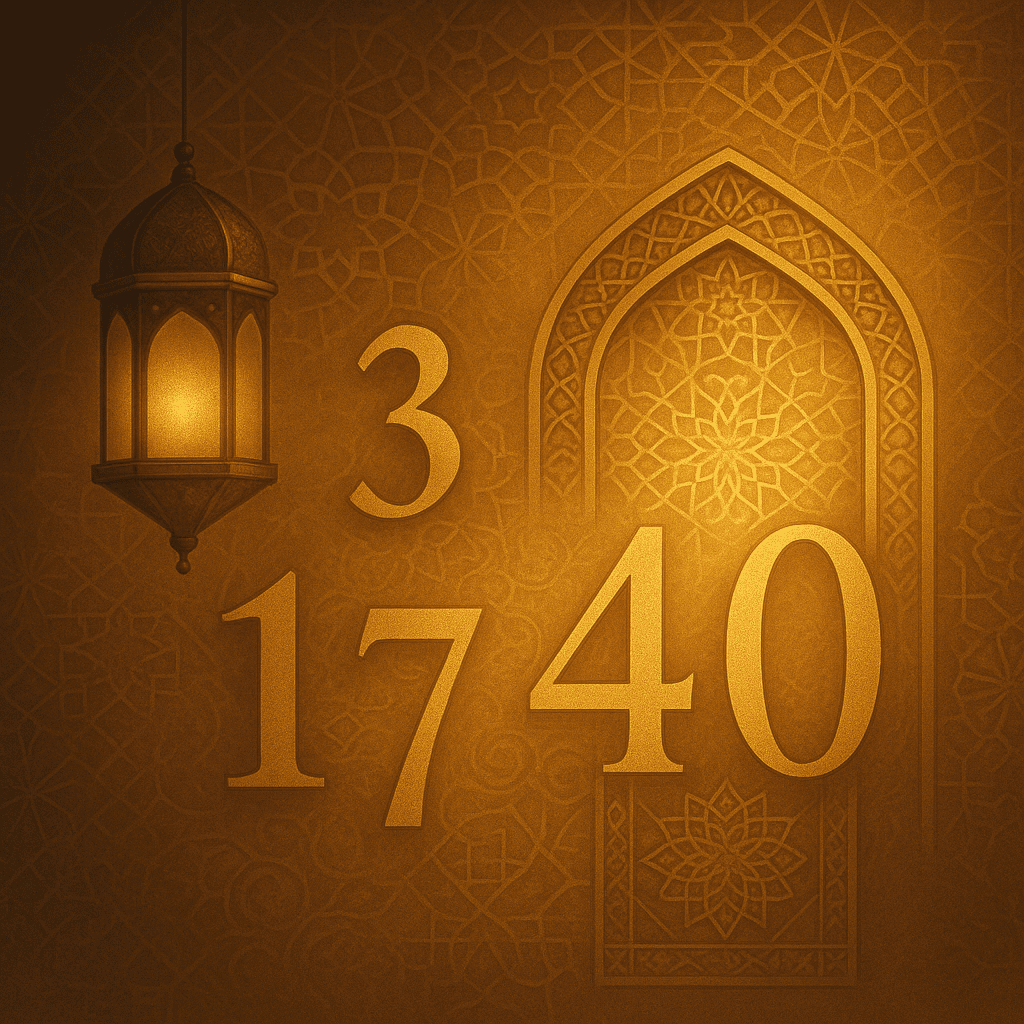Introduction
In the Islamic tradition, numbers are more than just measurements or quantities — they often appear in the Quran and Hadith with consistent, meaningful patterns. These numbers can serve as reminders, lessons, or symbols that connect us to deeper truths of faith.
Let’s explore how numbers in Islam carry spiritual significance — and what they might be calling our hearts toward.
Numbers in the Quran and Sunnah
The Quran and Hadith mention certain numbers repeatedly, and often with divine wisdom.
Examples include:
- 1: Tawheed – The Oneness of Allah
- 3: Times of wudu repetition, or forgiveness rituals
- 7: Number of heavens; times we walk around the Kaaba
- 40: Age of prophethood; waiting period in many Hadith
- 313: Number of soldiers in the Battle of Badr
Each of these isn’t just a number — it’s a spiritual pointer that invites reflection.
Symbolic Interpretations of Key Numbers
Here are a few commonly referenced numbers in Islamic tradition and their symbolic reflections:
| Number | Meaning |
|---|---|
| 1 | Unity of Allah — the most foundational belief in Islam. “Say: He is Allah, One.” (Surah Ikhlas 112:1) |
| 3 | Balance and completeness (often found in actions of purification or dua). |
| 7 | Perfection and divine order — seven heavens, seven earths, seven verses of Surah Al-Fatiha. |
| 40 | Maturity, transformation — Prophet ﷺ received revelation at age 40; Musa (AS) fasted 40 days. |
| 99 | The Beautiful Names of Allah (Asma al-Husna). A sign of divine perfection and diversity. |
💡 These meanings are not superstitions — they are inspirational, rooted in tradition, not mysticism.
Misconceptions and Clarifications
❌ Some people confuse Islamic symbolism with numerology (fortune-telling through numbers).
✅ Islam prohibits using numbers to predict the future or attribute power to them.
✅ In Islam:
- Numbers can represent values and signs, but not control fate.
- True knowledge belongs to Allah alone.
- We are encouraged to reflect, not to obsess or invent.
Final Reflection
The repetition of certain numbers in Islamic teachings invites contemplation, not calculation.
Whether it’s the seven verses of Fatiha or the three chances we are given to seek forgiveness, numbers in Islam echo themes of order, balance, and divine mercy.
Reflect on them. Learn from them. But always remember — meaning comes through faith, not formulas.
🌿 Curious about more signs, symbols, and reflections in Islam?
Explore deeper meanings at NurayaOnline — where faith meets understanding.
✅ Browse all blog topics ➔ NurayaOnline
🌿 Contribute to NurayaOnline
Support a journey of sacred insight, divine signs, and dream reflections.
Your contribution keeps our spiritual light alive.
🔒 Payments are securely processed by Google. No financial data is stored by NurayaOnline.



Comments are closed.